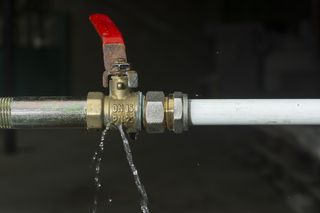Up to 160 voluntary redundancies expected at Tara Mines in phased reopening plan
Workers will ballot to approve proposals after operations were suspended last summer


UP to 160 voluntary redundancies are expected at Tara Mines as part of a phased reopening plan agreed at overnight talks.
The mine, which is the largest zinc mine in Europe, will reopen on a phased basis from June and is due to be back in full production within six to seven months.
Tara Mines in Navan is to reopen after unions agreed to proposals that the company says will safeguard the long-term future of the operation.
If the agreement reached with unions is approved by staff, workers will be brought back on a phased basis as the zinc mine resumes operations.
“We believe that the proposal that has been agreed is the best possible in light of the continuing external market challenges,” staff were told by management on Wednesday.
Under proposals put forward in January, Tara Mines would reduce its headcount from the 600 it employed this time last year to 400 full-time staff.
Owned by Swedish mining giant Boliden, Tara Mines has been under care and maintenance since last summer. Operations were suspended as the mine became unprofitable amid a fall in global zinc prices and elevated energy costs. The operation – one of the world’s largest zinc mines - made a loss of about €65m last year.
Tara Mines general manager Gunnar Nystrom has previously said the losses posted last year would have been “substantially higher” had operations not been suspended.
It’s been costing Boliden €1m a week to maintain the mine while negotiations with unions continued in the hope of restarting activity at the site.
In January, Tara Mines unveiled a rescue plan that would involve cutting about a third of the 600 jobs at the site and would have meant a huge initial reduction in the amount of ore the mine extracts every year.
The mine’s management warned that “difficult decisions” would have to be made to secure Tara’s future.
Trade union Siptu accused the company of trying to “rip up negotiated agreements” under a new rescue plan.
But now unions and management have come to an agreement following months of negotiations.
A deal was thrashed out at the Workplace Relations Commission on Tuesday and will now be put to union members for a ballot.
“It will take some time for the operation to resume in full, but our intention is to commence the re-opening process immediately on acceptance of the deal,” the company told employees in a letter on Wednesday. “We will then bring employees back to work on a phased basis.”
It added: “We believe that the proposals that has been agreed is the best possible in light of the continuing external market challenges. It will allow the mine to re-open on a basis that is financially sustainable, safeguarding the long-term future of the operation here.”
Management said that while the proposals agreed with unions will result in changes to the operation at Tara, they will enable the mine to put an end to the uncertainty that has existed in recent months.
The company said the agreement with unions would also enable it to recommence exploratory work at its so-called Tara Deep project. The company is searching for new seams that could substantially extend the life of the mine by decades. Tara Mines first opened in 1977.
Join the Irish Independent WhatsApp channel
Stay up to date with all the latest news
















